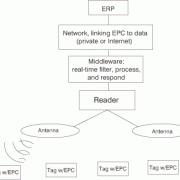Automatic data capture first began with the invention of the bar code in 1954. However, it was not until 1974 that industry fully developed the technology and the first standards became widely recognized [6]. Since that time, many firms have benefited from bar codes as a means of automatic data capture for raw materials, work in process, and finished goods. The use of bar codes has drastically reduced the amount of labor needed to conduct many basic business transactions. At the same time, bar codes have also improved data accuracy by reducing human input for data entry.
The Next Frontier: How Auto-ID Could Improve ERP Data Quality
Posted August 31, 2004 | |

Don’t have a login?
Make one! It’s free and gives you access to all Cutter research.


